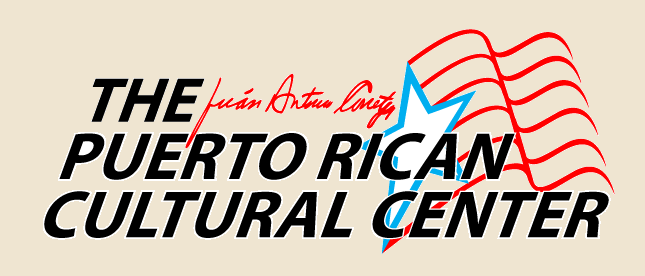by David González Walking past the Iron Men, Hulks, and Minions that beckoned to her in Times Square, Ana López stopped when she encountered Lady Liberty, whose green robes fluttered as she balanced herself on stilts. Ms. López asked the living statue to pose with a cardboard cutout she carried to commemorate the moment. The cutout, a life-size photo of a silver-haired man, declared “Oscar is free!” — referring to Oscar López Rivera, the long-imprisoned Puerto Rican nationalist whose 70-year sentence was commuted by President Barack Obama in the final days of his administration. “The Statue of Liberty represents freedom,” said Ms. López, a professor of Latin American and Caribbean studies at Hostos Community College in the Bronx. “That’s why France gave the statue to us, to show respect for independence and freedom. Yet Puerto Rico is maintained as a U.S. colony. Oscar’s not completely free until May 17, but he has become a symbol of freedom.” Ms. López was among 35 wome
n who had gathered in Times Square on the last Sunday of January for their monthly rally for Mr. López Rivera, a leader of the F.A.L.N., the Puerto Rican independence group that was responsible for about 100 bombings in the 1970s and 1980s. While not specifically linked to any of the six deaths caused by those violent acts, he was convicted of seditious conspiracy and transporting firearms and explosives, and was sentenced in 1981 to 55 years in prison. An attempted escape from federal prison tacked 15 years onto his sentence. [Ed. note: it was not attempted escape; it was conspiracy to escape]. He had rejected a previous offer of clemency, from President Bill Clinton in 1999, saying other Puerto Rican political prisoners had to be freed as well. Seeing himself as a political pris
oner, he also refused to renounce violence. [Ed. note: he did not refuse to renounce violence. He and his co-defendants had long since agreed to participate in a democratic process to end U.S. colonial control over Puerto Rico]. Though considered an unrepentant terrorist by some — especially the relatives and friends of those killed or injured in the bombings — Mr. López Rivera had become a figure whose release was supported by members of Congress, politicians in New York and Puerto Rico, and several Nobel laureates, including Archbishop Desmond Tutu. At the age of 74, they argued, he had spent enough time behind bars. In New York, Ms. López belongs to a group — 35 Women for Oscar — that has held monthly rallies throughout New York since 2014, when it called itself 33 Women for Oscar. The number refers not just to the size of the group, but also to the length of time Mr. López Rivera has served. The women held events throughout the city, collecting signatures on petitions and handing out literature, keeping the issue in the public eye, and inspiring similar groups in Ohio, Florida and elsewhere. An online petition urging clemency garnered more than 100,000 supporters and was submitted to the White House late last year. “In New York, the role the women played was major,” said Angelo Falcón of the National Institute for Latino Policy. “They were the public face of the movement to free him.” The New York group was patterned after one in Puerto Rico that had been pushing for Mr. López Rivera’s release, eventually gaining support that cut across party

lines on the island. Some of that group’s leaders visited New York, where the cause moved Melissa Montero Padilla to follow their example, getting 33 local women to come to the first rally, on March 30, 2014, in East Harlem. They chanted and handed out fliers, and, at later rallies, Mr. López Rivera sometimes called in from prison. Ms. Montero Padilla knows some people do not approve of Mr. López Rivera and his role in the F.A.L.N., but she said his actions had to be seen in the context of Puerto Rico’s relationship with the United States, from early efforts to “Americanize” its people to today’s debt crisis and brain drain. “You have to look at more than 100 years of history to understand why these groups formed,” she said. “After the nationalist groups in Puerto Rico were imprisoned in the ’50s, the movement changed,” she added. “In the ’60s, ’70s and ’80s these clandestine groups formed, like they did in other parts of the world, using militant tactics.” The group attracted women from different parts of the city, as well as different professions. They felt that as women, they brought a different sensibility. “This was us as mothers, elders, law students and social workers standing up,” said Natasha Lycia Ora Bannan, a human rights lawyer and one of the group’s coordinators. “There is a real different dynamic when women do it. “Speaking for myself,” she continued, “when women organize there is a different energy that is more about righteous indignation and morality. We are the ones in society charged with the care of our society in our families. When we say it is unacceptable to see one of our bothers in this condition, we bring moral outrage but not virulent anger.” The most recent Times Square rally was celebratory because it was the first since the announcement that Mr. López Rivera would be released in May. The women said they would continue their monthly rallies until then. “Our commitment is we are doing this until he returns to Puerto Rico,” Ms. Bannan said. “Until he is actually home. We don’t want anything to happen that would delay or impede his release. Until he is home, we will be here.” Originally published in the New York Times Febrary 5, 2017






